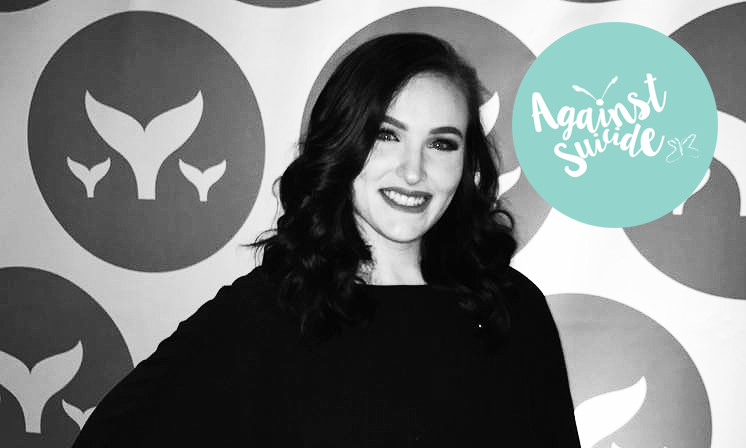When I was 14, something happened to me that changed my life. A beautiful girl – someone I knew and shared many laughs and smiled with – took her own life.
I was broken. I was broken for months. I’d be lying if I said I wasn’t still a little broken about it even now, after seven years have passed. I stayed up several nights just wondering what exactly could have been done differently that could have changed the outcome.
She deserved more than the ending she got. I felt like I needed to do something to help with the brokenness I was feeling. I felt constant hopelessness, sadness, and regret, and a million other emotions. There are no perfect words to describe the feeling of losing someone, and there are certainly no words to describe what it feels like when suicide is what takes them.
I ended up creating the Against Suicide movement on Twitter in May of 2011, and I expected nothing from it. Frankly, I wasn’t even really sure how Twitter or any social media platform worked at that time, but I needed an outlet. My goal at the time was to create suicide awareness and ultimately create positivity. I posted cheesy quotes that I found on the Internet and simply talked to people, and I was just fascinated with what social media could do.

We all have these platforms right at our fingertips to create, spread, and promote any message we want. Why not make it something positive? Why not make it something meaningful? As time went on, the content I created changed. I started educating myself on suicide and mental health, and the posts changed to reflect that. I wanted people to be able to look at my movement and feel the positive and encouraging atmosphere, but also feel as if they learned something and that they can do something to make a change themselves.
Years went by, and the following behind the Against Suicide movement grew and grew, and it was simply incredible. In 2013 and 2014, the movement won Shorty Awards in activism. Something I had created out of sadness had actually amounted to something, and it was creating something positive. Something that was inspired by a truly heartbreaking event in my life was reaching more people than I could’ve imagined.
That’s so much more than I could’ve asked for back in 2011. If you told 14-year-old me that I would have gained such a support system for suicide and mental health awareness, I would never have believed you. This has become such a huge part of me, though, that I don’t know who I would be right now without Against Suicide.
If you want to do something important, do it. If you want to talk about something that’s bigger than you, do it. Social media is an incredible tool that we can use to speak with anyone anywhere, and we can use it to our advantage. There’s nothing holding you back from saying what you want to say to the world.
When raising awareness for a cause like mental health, the success isn’t measured in numbers. Followers and retweets aren’t important in the end. What matters is that you’re using your voice and you’re making any sort of difference you can.
Not a day goes by when I don’t see my beautiful friend’s face in my mind, even after seven years. The last seven years have been life-changing, eye-opening, and full of so many learning experiences. Having so much success with a movement like this is always bittersweet. I’m so glad I’m able to speak with people about mental health. I’m so glad I’m able to reach as many people as I do. I’m so glad I’ve had the opportunities I’ve been given. But I would give it all back though to have my friend back in a heartbeat. It breaks my heart, but it also keeps me going.
If you or someone you know is contemplating suicide, please call the National Suicide Prevention Lifeline at 1-800-273-8255.

Carrie Shade is the founder of Against Suicide. Her friend’s suicide and societal ideas surrounding mental illness influenced her decision to discuss and advocate for mental health on social media. To read more about women changing the conversation surrounding mental health, check out Better’s advocacy series here.
